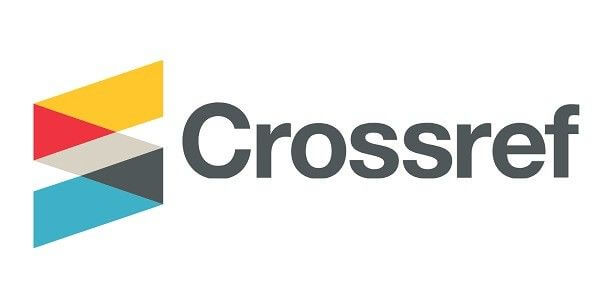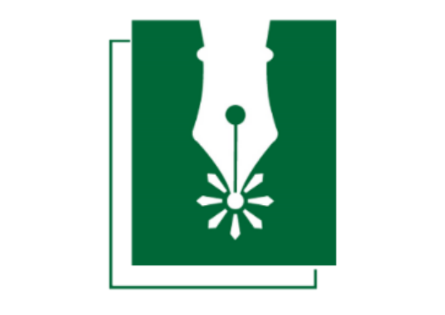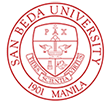Sustainable practices of selected publiclylisted higher educational institutions in ensuring good health and well-being
Keywords:
health, sustainability, publicly listed higher education institution, well-beingAbstract
This study investigated the sustainability practices of two (2) selected publicly-listed higher education institutions in the Philippines that ensure health and well-being. Research and publication, course offerings leading to health professions, and collaborations and health services were used as variables to measure sustainable practices that ensure good health and well-being. On the other hand, sustainable development was chosen to assess the assurance of good health and well-being. This study is based on the theories of health, well-being, sustainable development, and stakeholder theory. The qualitative exploratory research design was used. Data were from the 2020 websites of the respective universities, which contained annual reports, sustainability reports, and other documents. The information from these sources was analyzed using an analytical method. According to the findings, publicly-listed higher education institutions have published several studies on health and well-being in peer-reviewed journals that are either locally or internationally referred locally or internationally or indexed in World of Science (WoS) or Scopus. Nursing, medicine, dentistry, optometry, medical technology, pharmacy, psychology, and social work are among the health-related courses available to train competent and dedicated health professionals. Graduates of these courses will be expected to promote, protect, and treat the physical, mental, social, emotional, environmental, and holistic well-being of others. The analysis of collaborations and health services revealed numerous programs and activities related to networking with other health institutions, health outreach programs, mental health support, and health care services. It develops solutions to improve the health and well-being of university stakeholders using the skills and resources at its disposal. To ensure good health and well-being, stakeholders should collaborate to ensure an integrated and holistic approach to higher education sustainability. To address the study’s limitations, it is proposed that research be conducted using a different approach that links SDG#3 to other SDGs applicable to a university setting.
References
Allardt. E. (1989). An updated indicator system: having, leaving, being. working papers 48, Department of Sociology, University of Helsinki.
Aleixo, A., Azeiteiro, U., & Leal, S. (2020). Are the Sustainable Development Goals being implemented in the Portuguese higher education formative offer? International Journal of Sustainability in Higher Education, 21(2). https://doi.org/10.1108/IJSHE-04-2019-0150
Aleixo, A. M., Azeiteiro, U., & Leal, S. (2018). The implementation of sustainability practices in Portuguese higher education institutions. International Journal of Sustainability in Higher Education.
Aleixo, A., Leal, S., & Azeiteiroet, U. (2016). Conceptualization of sustainable higher education institutions, roles, barriers, and challenges for sustainability: An exploratory study in Portugal. Journal of Cleaner Production. http://dx.doi.org/10.1016/j.jclepro.2016.11.010
Alshuwaikhat, H. M., & Abubakar, I. (2008). An integrated approach to achieving campus sustainability: assessment of the current campus environmental management practices. Journal of cleaner production, 16(16), 1777-1785.
Bebbington, J., Herzig, C., & Moon, J. (2014). Higher education and sustainable development. Auditing and Accountability Journal, 27(2). p. 218-233. http://dx.doi.org/10.1108/AAAJ-12-2013-1553
Brundtland, G. H. (1987). Report of the World Commission on environment and development:" our common future.". UN.
Centro Escolar University. (2020). CEU Annual Report 2020. https://issuu.com/ceu-mis/docs/annual_report_2020
Cole, L. (2003). Assessing Sustainability on Canadian University Campuses: Development of Sustainability Assessment Framework (Doctoral dissertation, Royal Roads University).
Cortese, A. D. (2003). The critical role of higher education in creating a sustainable future. Planning for Higher Education.
Dade, A. E. (2010). The impact of individual decision-making on oncampus sustainability initiatives. University of Nevada.
Dahan, G. & Senol, I, (2012). Corporate social responsibility in higher education institutions: Istanbul Bilgi university the case. American International Journal of Contemporary Research, 2(3).
Diener, E., & Seligman, M. E. (2004). Beyond money: Toward an economy of well-being. Psychological science in the public interest, 5(1), 1-31.
Dolan, P., Peasgood, T., & White, M. (2006). Review of research on the influences on personal well-being and application to policy making. Defra.
Duderstad J.J. & Weber L.E. (2011), “Global sustainability and the responsibilities of universities", Glion Colloquium Series n. 8, Economica, Londra, 119–129.
Far Eastern University. (2021). FEU Annual Corporate Governance Report 2021. https://investors.feu.edu.ph/ corporategovernance. asp
Elkington, J. (1998). Partnerships from cannibals with forks: The triple bottom line of 21st‐century business. Environmental quality management, 8(1), 37-51.
Findler, F., Schonherr, N. , Lozano, R., Reider, D., & Martinuzzi, A. (2019). The impacts of higher education institutions on sustainable development: a review and conceptualization. International Journal of Sustainability in Higher Education, https://www.doi.org/10.1108/
Fischer, D., Jenssen, S., & Tappeser, V. (2015). Getting an empirical hold of the sustainable university: a comparative analysis of evaluation frameworks across 12 contemporary sustainability assessment tools. Assessment & Evaluation in Higher Education, 40(6), 785-800. https://doi.or/10.1080/02602938.2015.1043234
Freeman, R.E. (1999). Divergent stakeholder theory. Academy of Management Review, 24(2), 233-236.
Gray, R., & Bebbington, J. (2000). Environmental accounting, managerialism, and sustainability: Is the planet safe in the hands of business and accounting? Advances in environmental accounting & management. Emerald Group Publishing Limited.
Gottlieb, R. (2004). Sustainability on Campus: Stories and strategies for change. MIT Press.
Guidi, M. E. (2016). Jeremy Bentham (1748–1832). In Handbook on the History of Economic Analysis Volume I. Edward Elgar Publishing.
Govindaraju, B., Jeyasingam, J., Habib, M. (2016). Education supply chain management model to achieve sustainability in private universities in Malaysia: a review. International Journal of Supply Management, 5(4).
Govindaraju, B., Jeyasingam, J., Habib, M., Letchmana, U., Ravindran, R. (2018). Factors that contribute to the achievement of sustainability in private universities of Malaysia. International Journal of Supply Management, 7(2),
Harsanyi, J. C. (1996). Utilities, preferences, and substantive goods. Social choice and welfare, 14(1), 129-145.
Hill, P.S., Buse, K., Brolan, C.E. & Ooms, G. (2014). How can health remain central post-2015 sustainable development paradigm? Globalization and Health, 10(1), 18. https://doi.org/10.1186/1744-8603-10-18
Jongbloed, B., Enders, J., & Salerno, C. (2008). Higher education and its communities: interconnections, interdependencies and research agenda. Higher Education, 56, 303-324.
Kiron, D., Kruschwitz, N., Haanaes, K., & von Steng Velken, L. (2012). Sustainability nears a tipping point. MIT Sloan Management Review, 53, 69-74.
Kiseleva, L. (2013). Health as an economic resource in the context of contemporary theories. Czech Journal of Social Sciences Business and Economics, 2(3), 62-71.
Konu, A.& Rimpella, M. (2002). Well-being in schools: a conceptual model. Health Promotion International, 17(1).
Kretovics, M.A. (2016) Business practices in higher education: a guide for administrators. University College London.
Le Blanc D. Towards integration at last? The sustainable development goals as a network of targets. Sustainable Dev 2015;23:176–87.
Leal Filho, W., Azeiteiro, U., Alves, F., Pace, P., Mifsud, M., Brandli, L., Caeiro, S., & Disterheft, A. (2018) Reinvigorating the sustainable development research agenda: the role of the sustainable development goals (SDG). International Journal of Sustainable Development & World Ecology 25 (2), 131-142.
Leal Filho, W. (2011). About the role of universities and their contribution to sustainable development. Higher Education Policy. https://doi.org/10.1057/hep.2011.16
Leal Filho, W. , Manolas, E., Pace, P. (2015). The future we want: key issues on sustainable development in higher education after Rio and the UN decade of education for sustainable development. International Journal of Sustainability in Higher Education. ISSN. 1467- 6370
Lozano, R., et. al., (2014). A review of commitment and implementation of sustainable development in higher education: results from a worldwide survey. Journal of Cleaner Production, http://dx.doi.org/10.1016/j.jclepro.2014.09.048
Lozano, R., Lozano, F.J., Mulder, K., Huisingh, D., & Waas, T. (2013). Advancing higher education for sustainable development: international insights and critical reflections. Journal of Cleaner Production, 48(3).
Mainardes, E., Alves, H., & Raposo, M. (2013). Portuguese Public University student satisfaction: a stakeholder theory-based approach. Tertiary Education and Management 19(4), 353-372. http://dx.doi.org/10.1080/13583883.2013.841984
McKeown, R., Hopkins, C.A., Rizzi, R., Chrystalbridge, M. (2002). Education for Sustainable Development Toolkit, Version 2. Waste Management Research and Education Institute, University of Tennessee. http://www.esdtoolkit.org.
Orme, J., & Dooris, M. (2010). Integrating health and sustainability: the higher education sector as a timely catalyst. Health education research, 25(3), 425-437.
Osborn, D., Cutter, A., & Ullah, F. (2015). Understanding the transformational challenge for developed countries. Universal Sustainable Development Goals
Rieckmann, M. (2012). Future-oriented higher education: which key competencies should be fostered through university teaching and learning? Features 44(2), 127-135.
Ryff, C. D., & Keyes, C. L. M. (1995). The structure of psychological wellbeing revisited. Journal of Personality and Social Psychology, 69(4), 719.
Scott, S., & Lane, V. (2000). A stakeholder approach to organizational identity. Academy of Management Review, 25, 43-62.
Sibbel, A. (2009). Pathways towards sustainability through higher education. International Journal of Sustainable Higher Education, 10(1), 68-82.
Steiner, L., Sundstrom, A., & Sammalisto, K. (2013). An analytical model for university identity and reputation strategy work. Higher Education, 65(4), 401-415.
Sumner, L. W. (1995). The subjectivity of welfare. Ethics, 105(4), 764-790.
Times Higher Education Impacts Ranking Methodology Guide 2022 version 1.3.
United Nations. (2015). Transforming our world: The 2030 Agenda for Sustainable Development.
United Nations. (2020). The Sustainable Development Goals Report 2020. United Nations Development Programme. Sustainable Development Goals (SDGs). 2015. http://www.undp.org/content/undp/en/home/mdgoverview/post-2015-development-agenda/
Velasquez, L., Munguia, N., Platt, A., Taddei, J. (2006). Sustainable university: What can be the matter? Journal of Cleaner Production, 14, pp. 810-819. https://doi.org/10.1016/j.jclepro.2005.12.008
World Health Organization. (1948). The preamble to the Constitution of the World Health Organization as adopted by the International Health Conference, New York, 19-22 June 1946; signed on 22 July 1946 by the representatives of 61 States (Official Records of the World Health Organization, no. 2, p. 100) and entered into force on 7 April 1948.
World Health Organization. Health promotion glossary. WHO/HPR/HEP/98.1. Geneva: World Health Organization, 1998:1–36. http://www.who.int/healthpromotion/about/HPR%20Glossary%201998.pdf?ua=1
World Health Organization. Positioning Health in the Post-2015 Development Agenda. WHO discussion paper. 1–4 October 2012. http://www.who.int/topics/millennium_development_goals/post2015/ WHOdiscussionpaper_October2012.pdf?ua=1
World Health Organization (2015d). Health in 2015 from MDGs to SDGs. http://apps.who.int/iris/bitstream/10665/200009/1/9789241565110_eng.pdf?ua=1
Yamey G., Shretta R., & Binka FN. The 2030 sustainable development goal for health—must balance bold aspiration with technical feasibility. BMJ 2014;349:g5295.
Yang, S., Alessandri, S., & Kinsey, D. (2008). An integrative analysis of reputation and relational quality: a study of university-student relationships. Journal of Marketing for Higher Education, 18, 145-170.
- PDF | 378
- Abstract Views | 469
Published
How to Cite
Issue
Section
Copyright (c) 2023 Rulina Viloria

This work is licensed under a Creative Commons Attribution-NonCommercial-NoDerivatives 4.0 International License.











